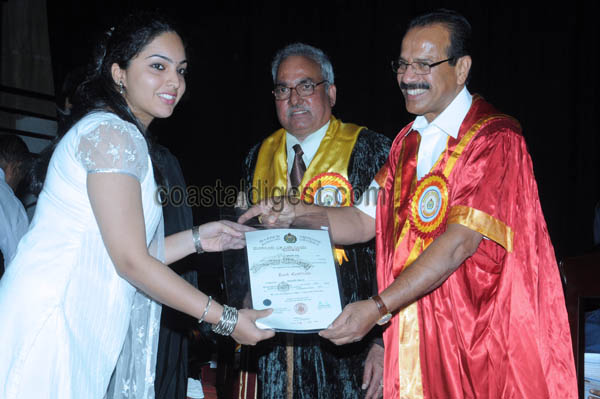
Mangalore, February 23: Renowned nuclear scientist Dr Srikumar Banerjee said that University was a place of activation of thinking process and creativity in a natural way in order to have a successful and strong foundation in an individual's life.
Delivering the 30th convocation address of Mangalore University here on Thursday at Mangala Auditorium in the campus of Mangalore University, Mangalagangothri near here, he that university education is not just teaching or learning the basics of science , engineering , arts and commerce.
Stating that education empowers everyone, Dr Banerjee said it was a key to the basic knowledge, development of skill, innovative abilities and attitude of an individual.
Quoting Pandit Jawaharlal Nehru, he said a university stands for humanism, for tolerance, for progress, for adventure of ideas and for the search of truth. It stands for the onward march of the human race towards ever higher objectives
Stating that the country's future is in the hands of young population, he said the intellectual capability of young minds and their desire to contribute to the welfare of the country are great assets for taking our country to greater heights.
“Nurturing this pool of talent and providing them with good education in the institutes of higher learning will go a long way in the process of fostering creativity and developing a knowledge based economy for our country”, he said.
Applauding the Mangalore University for its contribution to the development of the country in the field of education and knowledge he said, the most valuable knowledge was the one that works for the benefit of the society.
“Knowledge is not the sum of pieces of information we receive during the course of study. Information becomes obsolete very fast and needs continuous updation. Knowledge is something much deeper which we acquire through accumulation of information over a period suitably distilled by our own experience and rationale thinking. This process continues through our entire life,” he said.
Dr Banerjee, who is the Chairman of Atomic Energy Commission and Secretary to the Department of Atomic Energy of the Government of India, said that one of the main challenges the nation was facing today is bringing harmony between extensive growth in energy production to meet the aspirations of the developing world and at the same time preserving environment of mother earth.
He said that the concern of climate change and global warming is indeed genuine. “A rise in the level of sea water by about a meter will inundate an extensive area of our country and displace a large population from their present habitat. We are thus at the crossroad where a significant increase in energy generation is essential keeping an eye on resource preservation and protection of environment”, he added.
Dr Banerjee was one among the three personalities who were conferred with 'Honoris Causa' during the convocation. While Dr Banerjee was awarded for his contribution in the field of science and technology, Dr Govinda rao Marapalli, Director of National Institute of Finance and Policy and senior litterateur Yerya Laxminarayana Alva were conferred with the 'Honoris Causa' in recognition of their contribution in the field of education and literature & social service respectively.
Chief Minister D V Sadananda Gowda, who is also the Education Minister and Pro-Chancellor presented the degrees to the above three personalities and students.
After welcoming and introducing the guests, Vice Chancellor Prof. TC Shivashankara Murthy presented the annual report. The programme commenced and ended with national anthem.
CARRT Inauguration
After the convocation ceremony, Dr Srikumar Banerjee inaugurated the Centre for Application of Radiosotopes and Radiation Technology (CARRT) in the university in the presence of Chief Minister D V Sadananda Gowda and Vice Chancellor Prof Shivashankar Murthy.


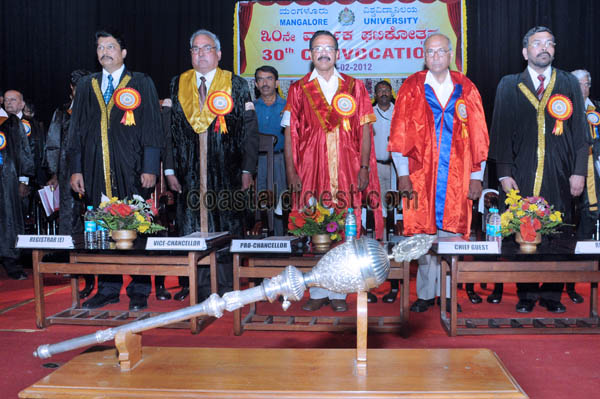
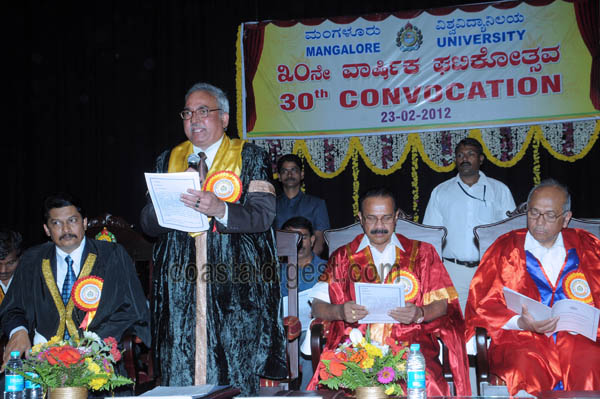

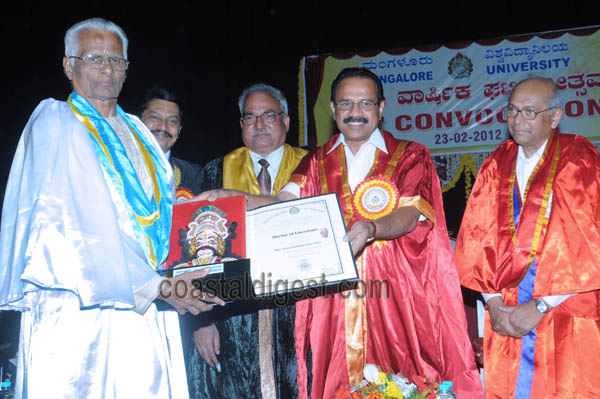
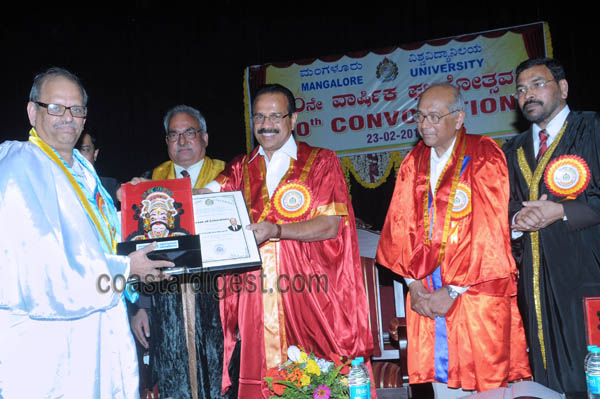
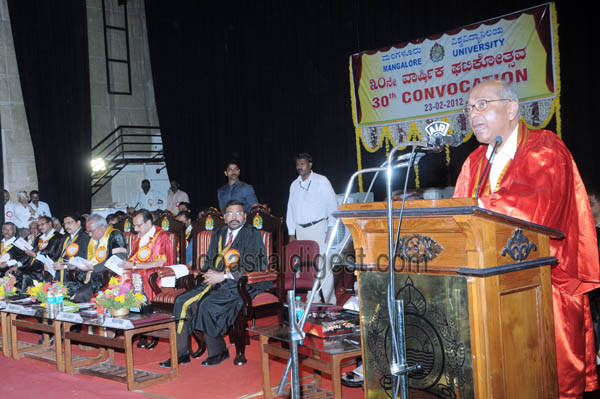
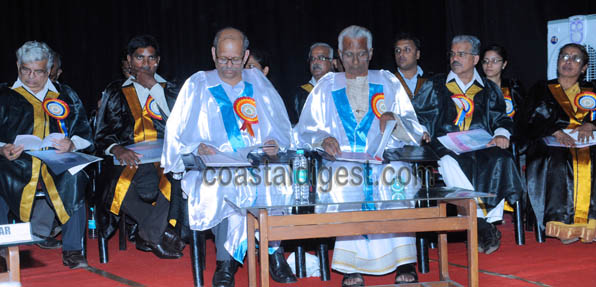
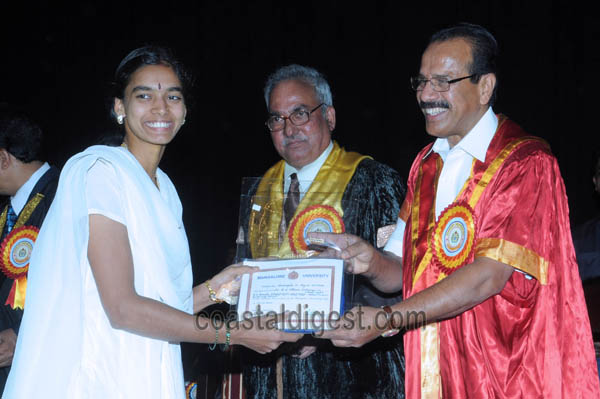
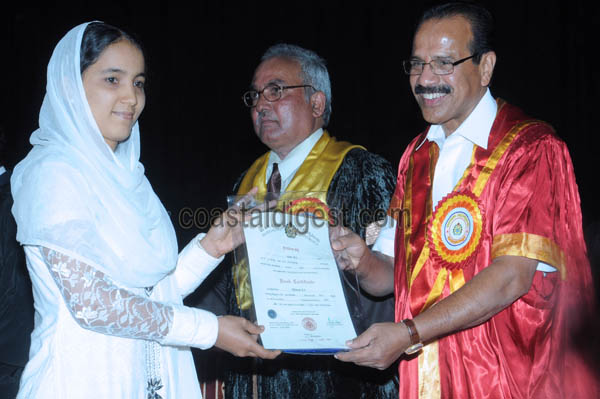
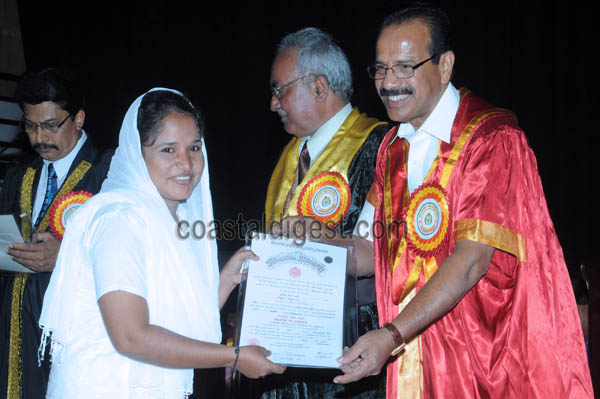
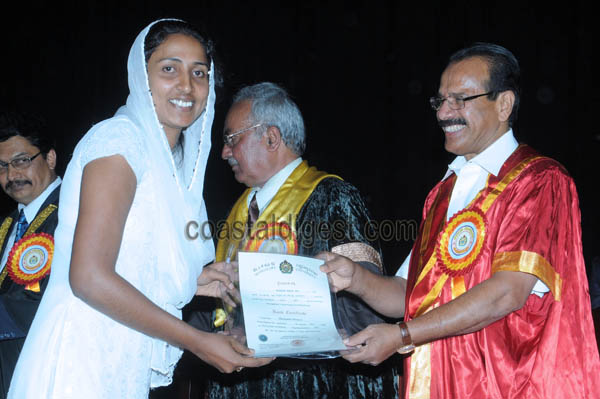
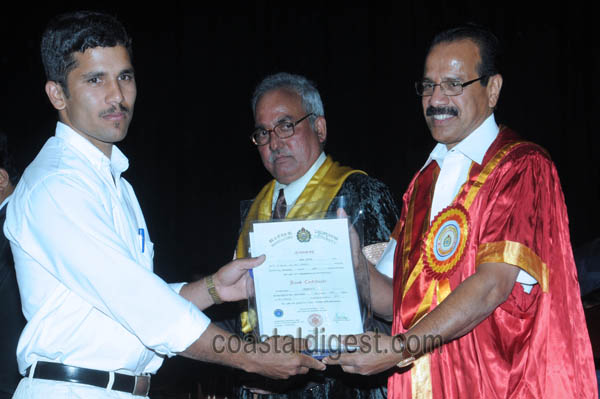
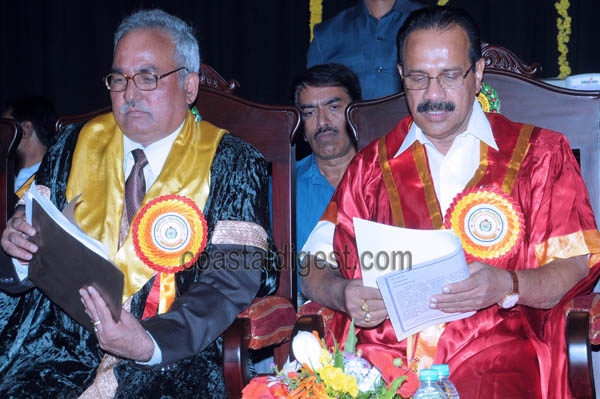
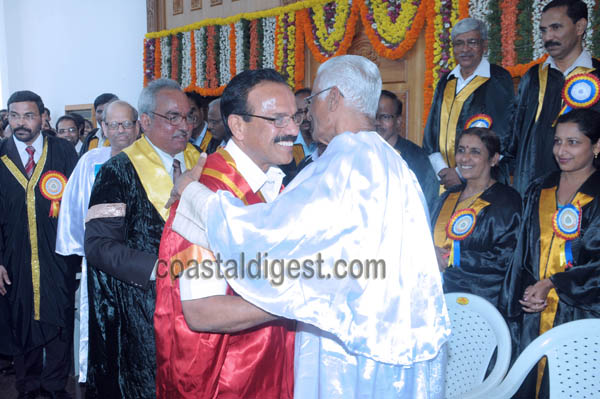
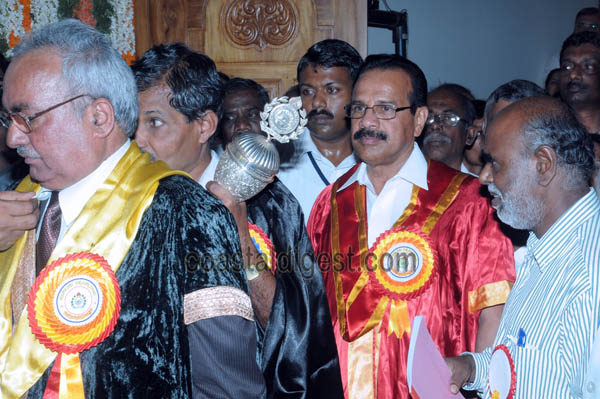
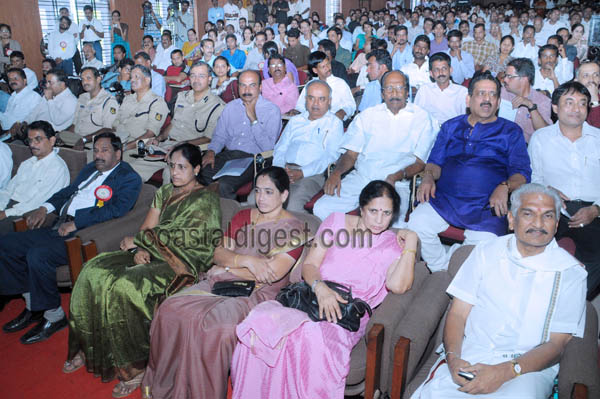
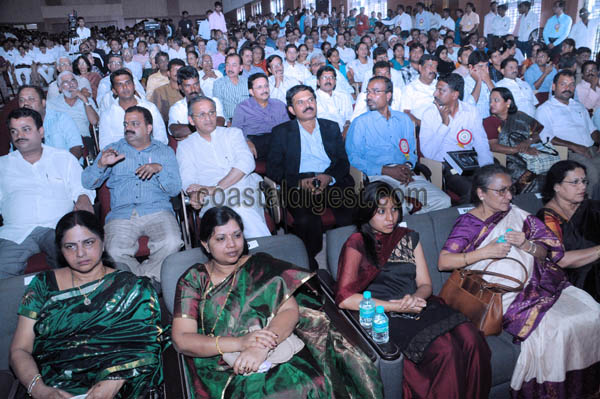
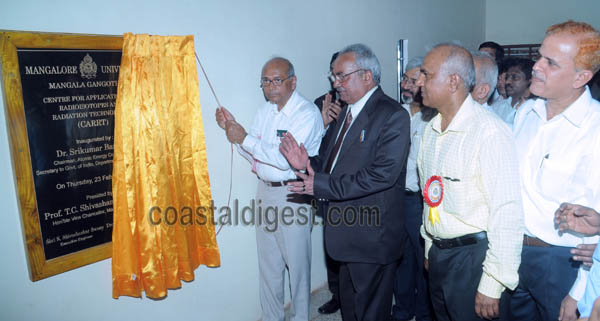
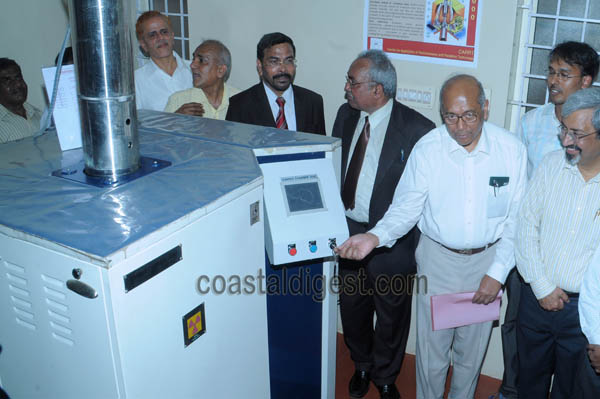
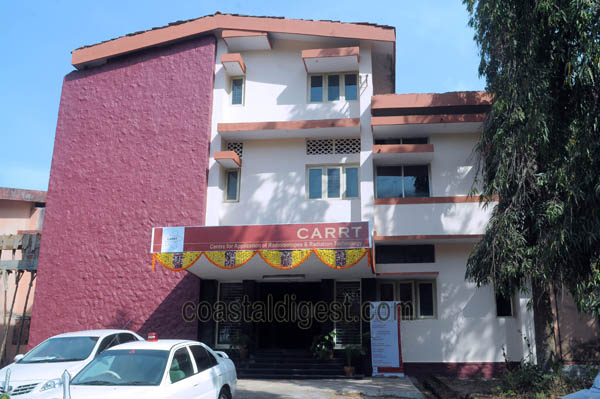

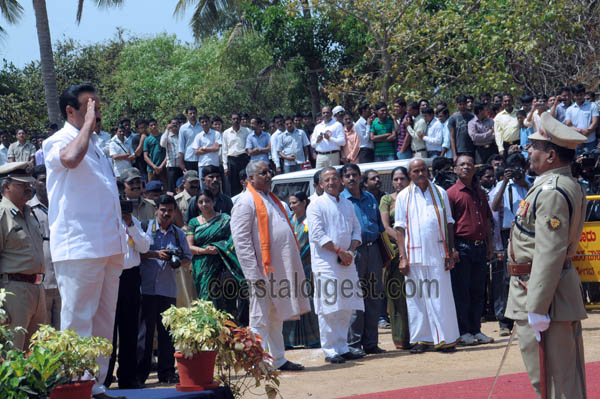

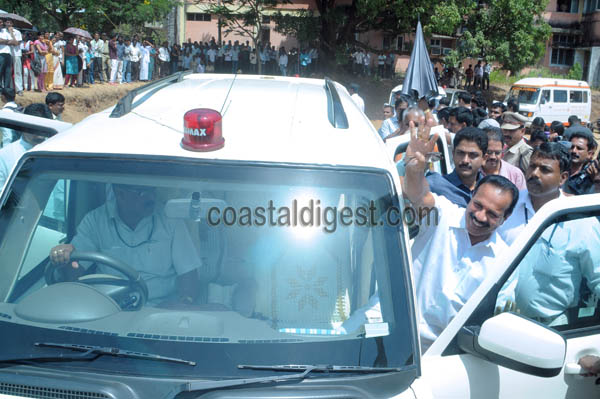





Comments
Add new comment